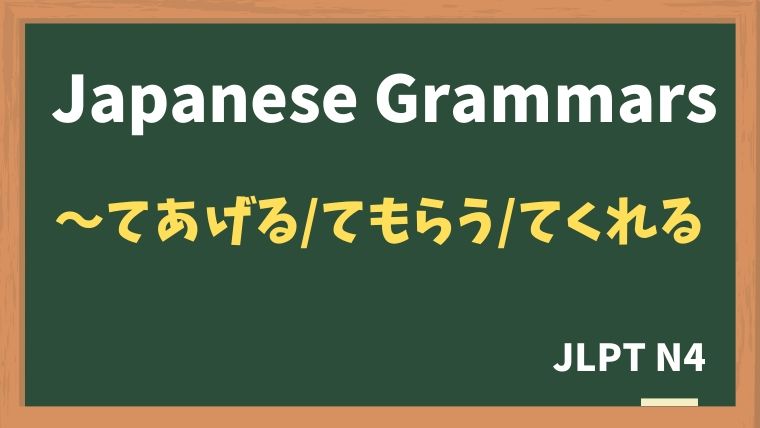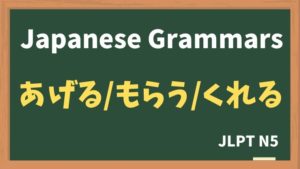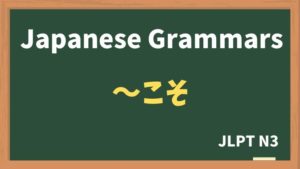
Explanation:〜てあげる / 〜てもらう / 〜てくれる
fa-check-circleMeaning
The expressions "〜てあげる," "〜てもらう," and "〜てくれる" are commonly used in Japanese to describe acts of giving and receiving favors, with nuances depending on the relationship between the giver and receiver of the action. These expressions add an element of empathy or gratitude and can express mutual support or goodwill.
fa-check-circleForm
Giverは/が Receiverに V(Te form)あげる
Receiverは/が Giverに V(Te form)てもらう
Giverは/が Receiver(わたし)に V(Te form)くれる
fa-check-circlePoints
- Perspective:
- "〜てあげる" indicates the speaker gives a favor to someone.
- "〜てもらう" indicates the speaker receives a favor from someone.
- "〜てくれる" indicates someone gives a favor to the speaker or a person close to the speaker.
- Relationship Dynamics: These expressions often imply closeness, consideration, or appreciation between the individuals involved.
- Usage Contexts: They are typically used to convey actions done out of kindness or helpfulness, making them common in casual, friendly, or polite settings but rare in formal writing.
fa-check-circleJLPT Level
N4
Notesfa-check-circle
- Politeness and Respect: "〜てあげる" can sound overly direct or presumptuous if used with superiors or people outside close relationships, as it implies that the speaker is doing something beneficial for them.
- Implied Gratitude: With "〜てくれる" and "〜てもらう," there is often an implied sense of appreciation or gratitude, as these phrases focus on the benefit received by the speaker.
Sample sentenes
わたしは ともだちの 宿題を 手伝って あげました。
I helped my friend with their homework.
わたしは ともだちに けしゴムを かして あげました。
I lent my friend an eraser.
教科書を 忘れたので 先生に かして もらいました。
I forgot my textbook, so I borrowed one from my teacher.
彼氏に 駅まで おくってもらいました。
My boyfriend drove me to the station.
母は わたしに ケーキを 作って くれました。
My mother baked me a cake.
日本人の ともだちが 日本語を おしえて くれました。
My Japanese friend taught me Japanese.
Vocabulary
| Japanese |
English | |
| 宿題 | しゅくだい | homework |
| 手伝う | てつだう | to help |
| 消しゴム | けしゴム | eraser |
| 貸す | かす | to lend |
| 教科書 | きょうかしょ | textbook |
| 忘れる | わすれる | to forget |
| 彼氏 | かれし | boyfriend |
| 作る | つくる | to make / to cook |
| 教える | おしえる | to teach |






